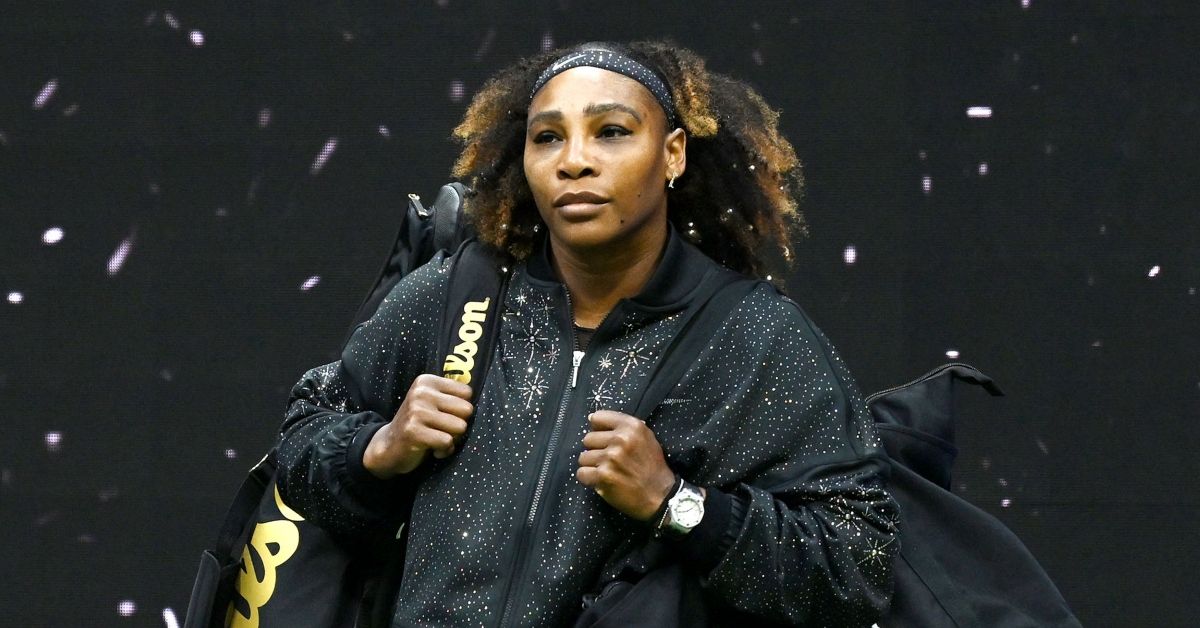Serena Williams is an American professional tennis player who is considered one of the greatest athletes of all time. Since her first professional tennis appearance in 1995, Serena has won a total of 23 Grand Slam singles titles, 14 Grand Slam doubles titles and 4 Olympic gold medals, securing her position as one of the most successful and accomplished tennis players of all time. time.
While she announced her retirement last year, throughout her career, Serena was best known for her powerful serve and aggressive style of play. She is recognized as a trailblazer for women and people of color in tennis, breaking down barriers and advocating for equal pay and equal opportunity in the sport.
While Serena is often in the news for other reasons, like her marriage to husband Alexis Ohanian, and her refreshingly honest take on her body image struggles. In 2022, she became involved in a major controversy related to non-fungible tokens (NFT), which are digital assets that use blockchain technology to certify ownership of a unique piece of digital content. The scandal revealed larger issues surrounding the NFT market and has led to a wider debate about the role of technology in the art world. Here’s why her NFT scandal may be more serious than we first thought…
What are NFTs? And why are they considered controversial?
NFTs (non-fungible tokens) are a digital asset that uses blockchain technology to verify and certify ownership of a unique piece of content, such as art, music, videos, or other types of digital media. Each NFT is a unique, one-of-a-kind piece of digital media that cannot be replicated or exchanged for another token of the same value. They provide creators with a way to monetize digital content that was previously difficult to sell, with blockchain technology making it possible to verify and track ownership of the content. This can increase the perceived value of the asset.
However, NFTs have also become controversial for several reasons. One of the main criticisms is that they contribute to the growing problem of energy consumption associated with cryptocurrencies, as the process of verifying and creating an NFT requires significant amounts of computing power and energy. In addition, some critics argue that NFTs contribute to the commodification of the digital art industry and widen the wealth gap between artists and collectors.
Another concern with NFTs is the issue of authenticity and ownership, while NFTs can provide proof of ownership, they do not necessarily guarantee the authenticity of the content itself. There have been several cases where NFTs were found to be plagiarized or copied without the permission of the original creators, and many celebrities such as Serena Williams have been involved in scandals due to their collaboration with NFT platforms.
How Serena Williams Is Allegedly Involved in a Lawsuit After the NFT Plagiarism Scandal
The controversy began in 2021, when Serena Williams announced that she would be auctioning an NFT collection titled “The Serena Collection” in partnership with a popular NFT platform. The collection was meant to celebrate her career and feature digital art, animation and other digital media.
However, controversy arose when it was revealed that one of the NFTs in the collection was created by a company called Bored Ape Yacht Club (BAYC), who had been accused of plagiarizing the artwork of a lesser-known artist. The NFT in question was a cartoon image of a woman wearing Williams’ signature braids and tennis outfit, but the image was almost identical to one of the works created by the artist.
What followed was reportedly a class action lawsuit against Yuga Labs, the company behind the NFT series Bored Ape Yacht Club. Several other celebrities were named for their involvement in the “promotion and sale of a variety of digital assets”, including Justin Bieber, Madonna and Gwyneth Paltrow. The multi-billion dollar lawsuit further stated that the company’s “entire business model relies on using insidious marketing and promotional activities by A-list celebrities who are highly compensated (without disclosing such) to increase demand by convincing potential retail investors that the price of these digital assets will appreciate.”
The public backlash was intense, with many accusing Williams and the other celebrities of supporting plagiarism and not doing enough research to ensure that the artwork in the collection was original and not stolen from other digital artists.
Why Serena Williams’ NFT scandal is even more serious than many initially thought
In addition to the immediate backlash after the plagiarism scandal, this incident raised more important questions about NFTs and the ethical implications of their use in the art world. Many expressed concern about the hype surrounding NFTs, which could lead to a “wild west” situation that allows plagiarism and other unethical practices.
An investigation of ArtNet reportedly found that Bored Ape Yacht Club’s founder, Yuga Labs, had a history of selling unlicensed bootleg merchandise related to other major companies. In addition, the same artist who accused them of plagiarism reportedly discovered that another piece of art in the “Serena Collection” was based on one of her earlier works.
A similar discussion has been the controversy surrounding digital art being plagiarized by artificial intelligence. One of the main challenges when it comes to AI art is that it can be difficult to determine who is actually the creator of the artwork.
While the algorithms used to generate the art are created by humans, the resulting artwork is often a product of the machine learning process, which can be unpredictable and difficult to control. This has led to debates about whether the artist should be credited as the creator of the artwork, or whether the machine learning algorithm itself should be considered the creator.
Overall, the NFT scandal involving Serena Williams highlighted the need for greater transparency and accountability in the creation and distribution of NFTs. The situation sparked a wider discussion about the ethics of NFTs and the potential consequences of their use. The scandal may also have exposed larger problems in the NFT market that will require further investigation and scrutiny to ensure that the original work of artists is protected, and not plagiarized or exploited.





